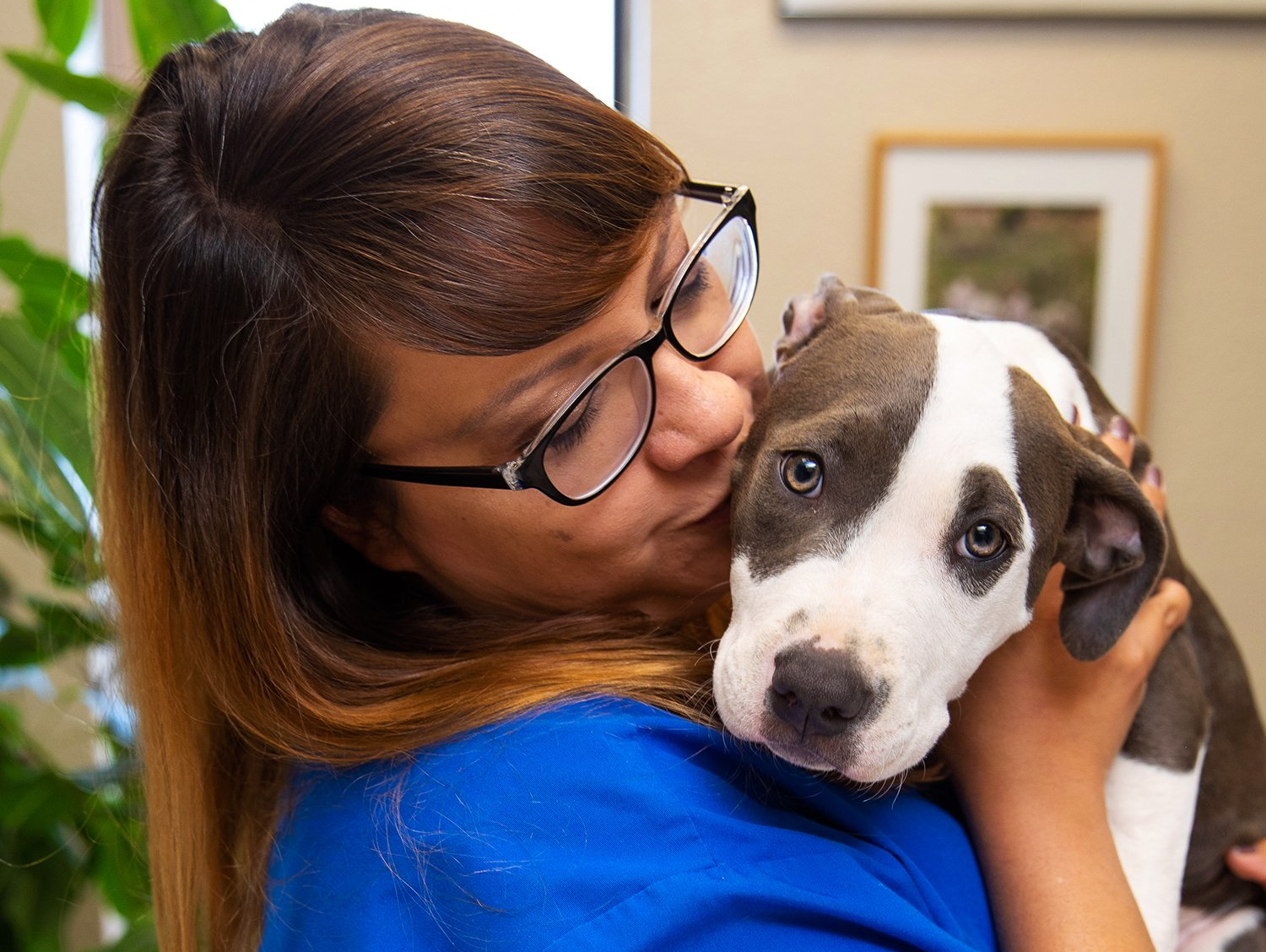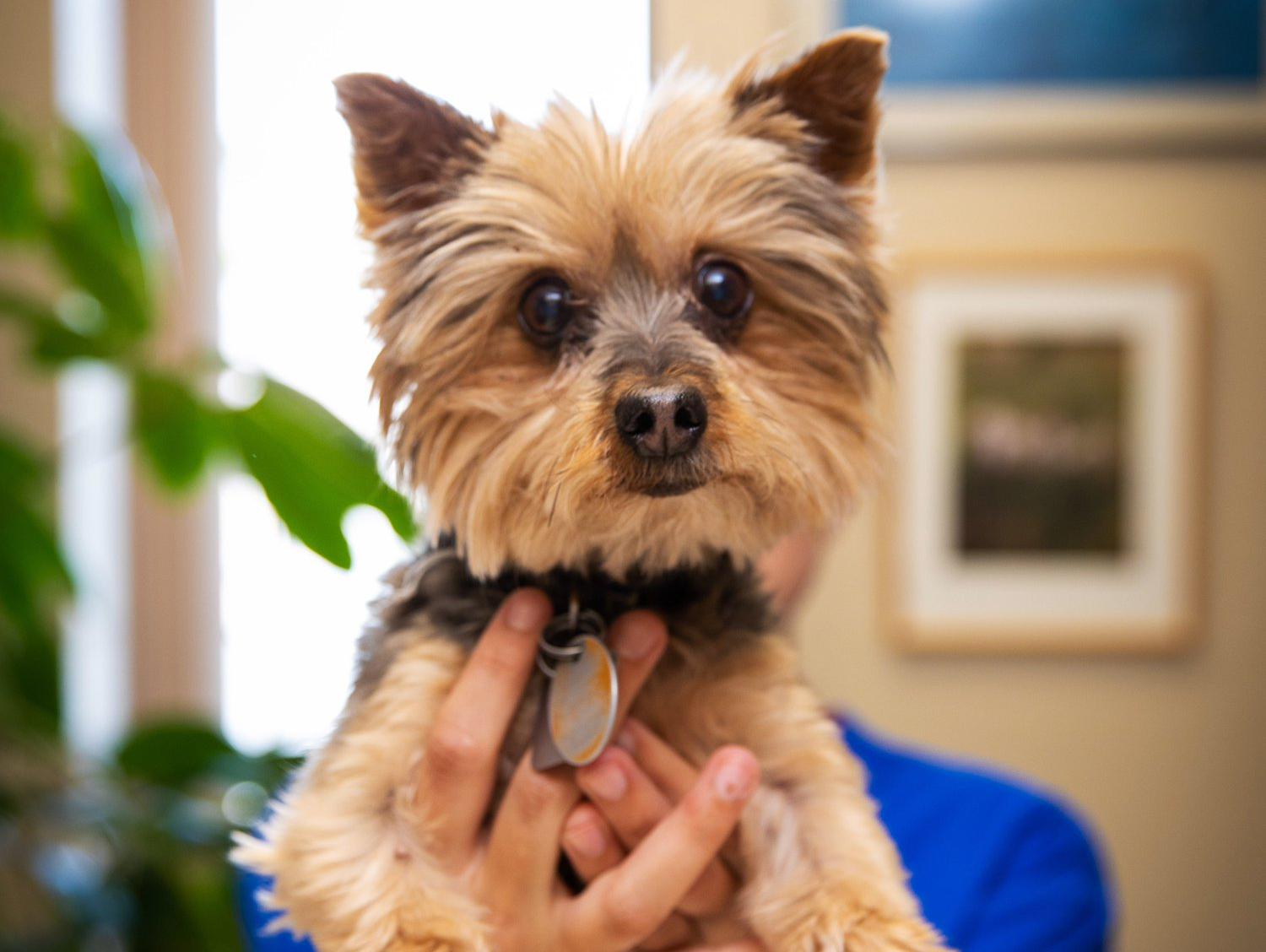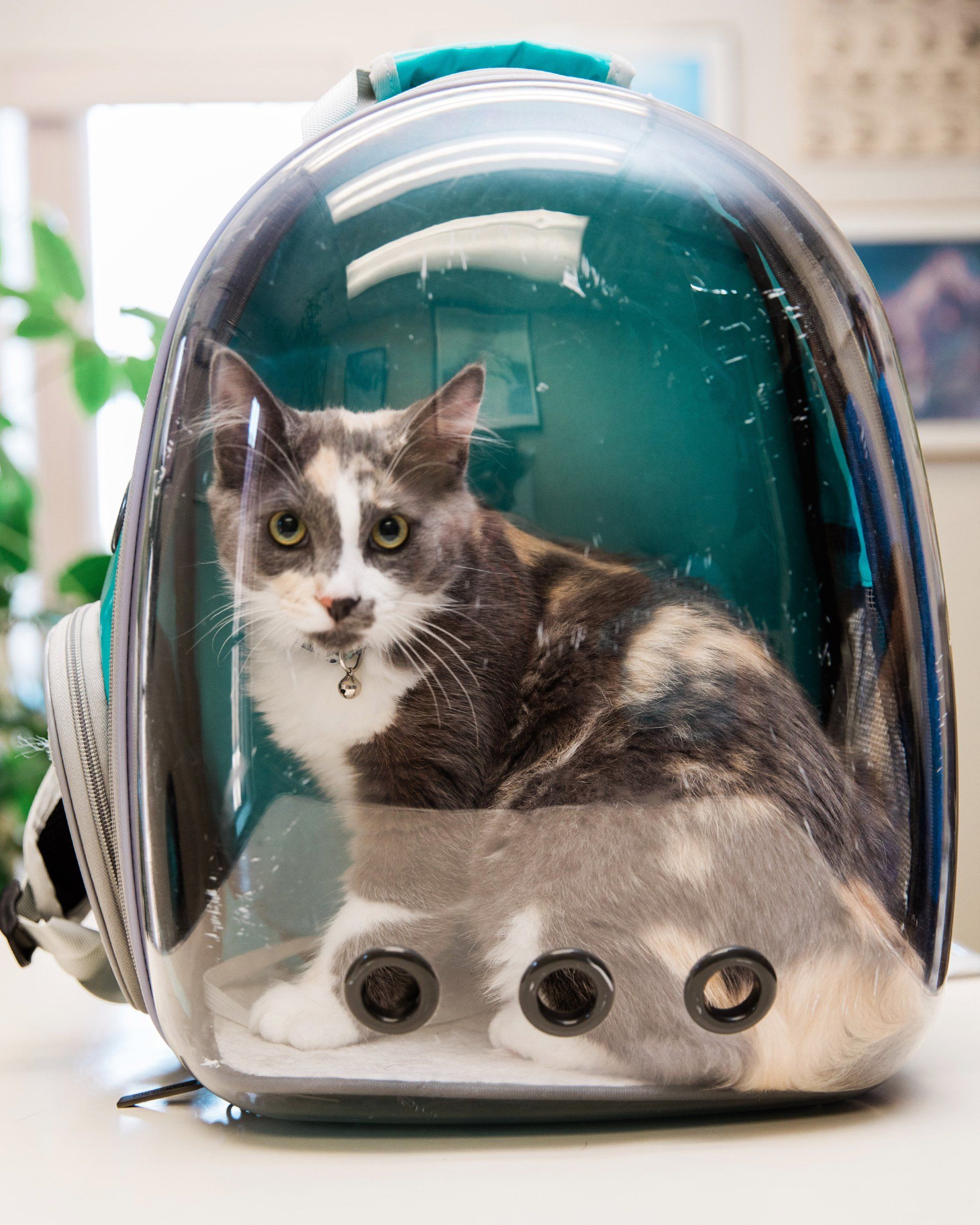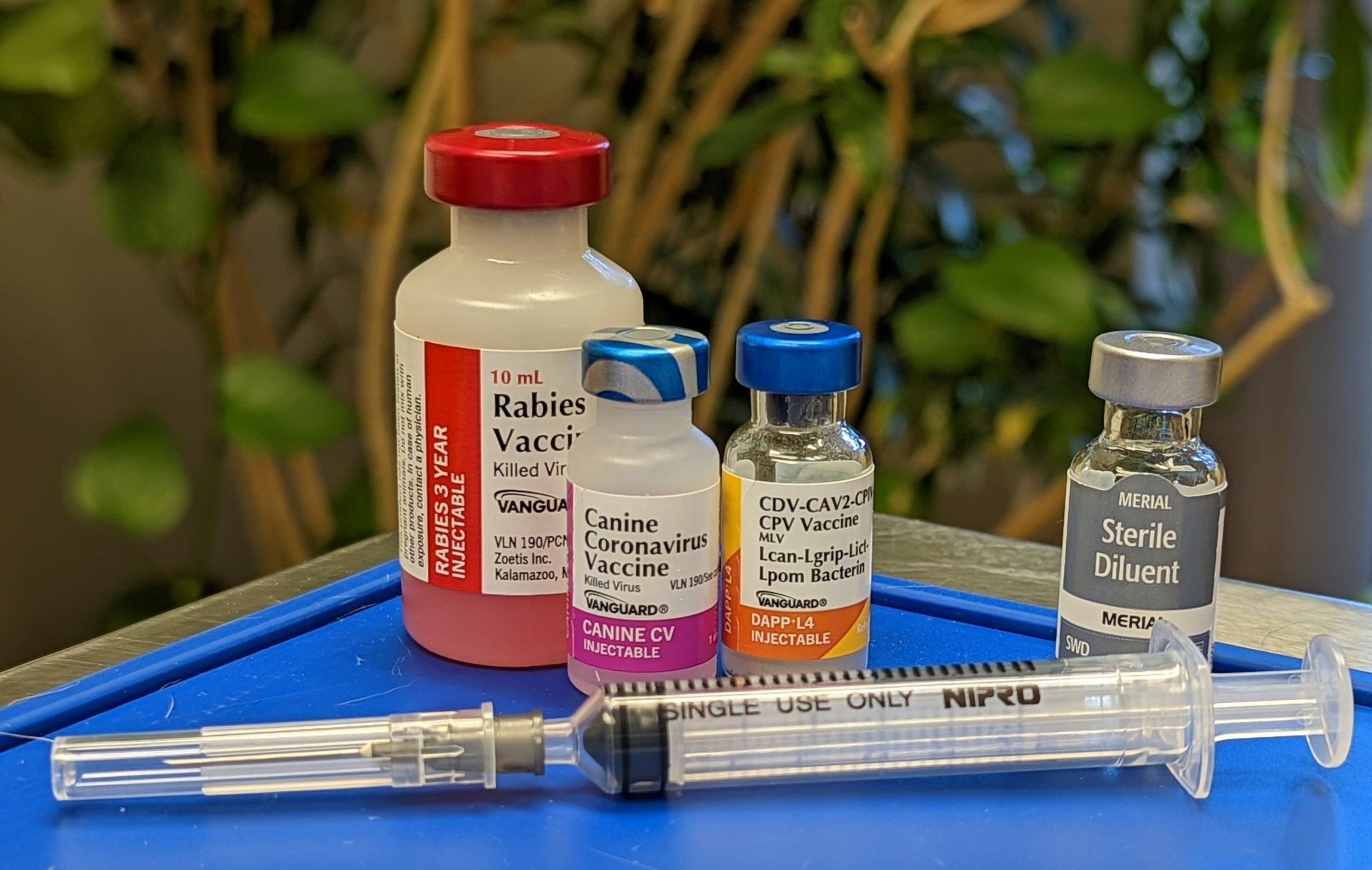Puppy Vaccines
Adopting a new puppy is exciting and rewarding! We want to help you keep your new family member healthy and safe from diseases. At Sunrise Veterinary Clinic, we offer a series of preventive vaccinations to keep your pet protected as they explore their new world. The first vaccine is for Parvovirus, which is given at 7 to 8 weeks of age. This is followed by the Distemper, Hepatitis, and ParaInfluenza (DHP) combination vaccine given in three sets, three weeks apart. Finally, the Rabies virus vaccine is given at 12 weeks of age.
Adult Canine Vaccines
The threat of viral infection does not stop after an animal's youth. Vaccines must be updated to maintain effectiveness against these microscopic threats. We recommend boosters of the Rabies vaccine one year after the initial vaccination, then every three years thereafter. We also offer a 7-in-1 vaccine combination which includes Distemper, Coronavirus, Hepatitis, Parvovirus, Parainfluenza, and Leptospirosis Bacterin types Leptospira Canicola- Grippotyphosa-
Icterohaemorrphagiae- Pomona. We recommend administering the 7-in-1 every 1 to 3 years. Influenza (Flu), rattlesnake venom, Bordetella (kennel cough), and Lyme disease vaccines are also available for your dog.
Kitten Vaccines
Just like our young canine companions, kittens require their own set of vaccines against diseases. We recommend the Rabies vaccination at 12 weeks, the first feline Distemper 4-in-1 vaccine (includes Feline Viral Rhinotracheitis, Calicivirus, Panleukopenia and Chlamydia) at 10 weeks, and the Distemper virus booster at 14 weeks. To combat leukemia, kittens are recommended the Leukemia vaccine at 14 weeks of age, and again at 18 weeks of age.
Adult Feline Vaccines
We recommend boosters of the Rabies vaccine at one year after the initial Rabies virus vaccination, followed every three years thereafter. We recommend yearly boosters to all cats for the Distemper vaccine, and yearly boosters of the Leukemia vaccine to outdoor or exposed cats.
Rabbits and Ferrets
For rabbits, we offer a vaccine against Hemorrhagic Fever, which is a disease that causes bloody diarrhea in lagomorphs and is almost always fatal.
Rabies vaccination is required for all ferrets 3 months or older in the state of New Mexico. Boosters are required annually for these animals.
More About Vaccines
The vaccinations we use at Sunrise Veterinary Clinic are safe, effective, and easy to administer to your beloved animals.
Vaccines for veterinary use include the following:
- Attenuated: These are considered live or modified vaccines. The agent has been altered such that it is unable to cause illness.
This includes: Puppy Parvo, Puppy Distemper, 7-in-1 Canine, 5 in 1 Canine, Oral Bordetella, and 4-in-1 Feline. - Inactivated: These are "killed" vaccines. The agents in question are not alive and thus unable to reproduce, making these some of the safest vaccines to administer (with the exception of sarcomas in cats).
Vaccines of this type include: Rabies, Coronavirus, Canine Influenza (H3N2, H3N8), Leptospirosis and FILAVAC VHD K C+V (Rabbit). - Toxoids: These are not organisms, but chemicals which cause disease. However, they are sufficiently alternated to be safe while still triggering antibody responses which induce immunity.
Vaccines of this type include: Crotalus (Rattlesnake toxin), Tetanus (for large animal) and Oral Bordetella. - Recombinant: This type encompasses everything from vectors, subunits and chimeras. The only vaccine we currently offer of this category is the Feline Leukemia vaccine.




